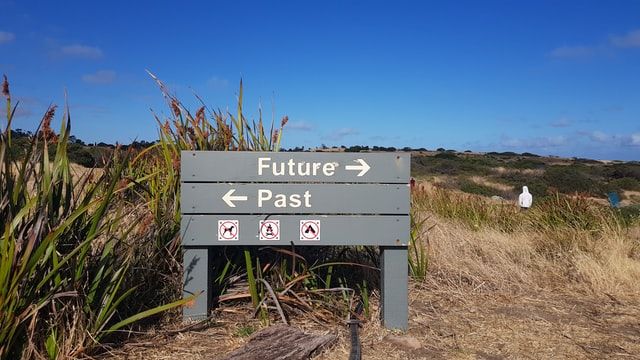Will your view of the future change if real estate prices drop?
What's the impact of rising interest rates? One analyst says they could get us to a place where things get "very uncomfortable because you're near that place where you risk a loss of faith in the market."
Residz Team 3 min read

I’ve just read a fascinating article from James Marlay looking at Australia’s property market, and one paragraph in particular stands out (bold typeface is mine):
“If you do get to that point where the public loses faith in the housing market, they will change their behaviour. They will want to de-gear, they will want to sell, they will want to save more, they will reduce their spending because they've changed their view of the future. That's the big risk.”
- James Marlay, Livewire Markets
“They will change their behaviour…..They’ve changed their view of the future.” It’s a more nuanced way of looking at how the “correction” of rising interest rates in the heated property market will affect Australian householders.
Mostly, when we watch suburbs slowing in price growth, we real estate writers are quick to jump on it being a marvellous opportunity for first home buyers to enter the market.
Well, yes it is. However, if prices drop to the point “where the public loses faith in the housing market” even those helped by homebuyer initiatives from the new Labor government might be too nervous to invest.
At what point might this happen?
James goes into how a 200 basis points rise would translate into a 16% hit to property values (based on a drop in borrowing ability). This, he says, is “roundabout at that level where things can become very uncomfortable because you're near that place where you risk a loss of faith in the market.”
In the past two years the easy availability of credit, rising rents, herd mentality, and the need for security in uncertain times have seen householders put huge faith in the housing market - and have been rewarded for it.
In a previous real estate boom, a Senate committee report “Factors influencing the demand for housing” wrote this prescient paragraph:
“Related to this boom period is the self-generating nature of house price rises. Most finance for housing arises from the high price already of existing housing, because people upgrading build on the increased value of their housing, and investors are then drawn in by rising prices. So you have a self-generating effect until they hit something like much higher interest rates or a recession or something.”
With Australia’s housing values slowing or dipping, mortgagees and potential buyers do feel they’re about to be “hit by something.” Borrowers are already reacting to rising interest rates, and with rising inflation, householders’ “view of the future” is shifting.
Just look at this data out of the U.S.:
- More than 8 in 10 U.S. consumers are planning to rethink or even reduce their product spending in the next three to six months, according to a new report from market research firm The NPD Group. (CNN)
- Recent spending data from the IRI CPG Demand Index, shows U.S. consumers pulled back on many non-essential purchases in April 2022, as reflected in reduced demand in nearly all non-edible categories.
However, travel and leisure spending is not being curtailed “due to repressed needs”, reports CNN, and many Aussies are getting the travel bug.
While travel spending is up, the Commonwealth Bank’s Household Spending Intentions research found “home buying” was down on the list of intents 27.3% from a year ago.
Services (which includes travel) spending is generally up. U.S. consumers are finally spending as much on services as they did pre-pandemic, according to Kathy Bostjancic of Oxford Economics. (Marketplace)
As a mortgagee myself, I see my own spending behaviour subtly changing. I’ve been avoiding shops, cancelled some subscriptions I haven’t used, have been more careful about power usage, bought cheaper wines and food staples, treated myself to fewer coffees and haircuts, and have filled the car up with cheaper petrol. I’ve also held off on discretionary repairs and bigger ticket items (like picture framing, reupholstery, window blinds).
How about you? Have you noticed a change in your spending habits? Will you sell your house? Will you buy? How has your view of the future changed?
Photo by Hadija Saidi on Unsplash